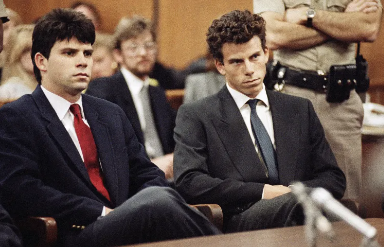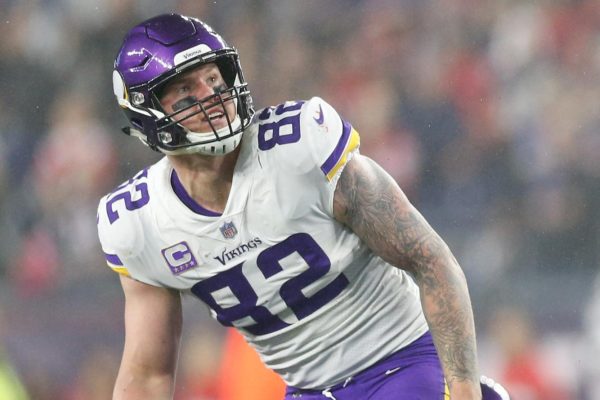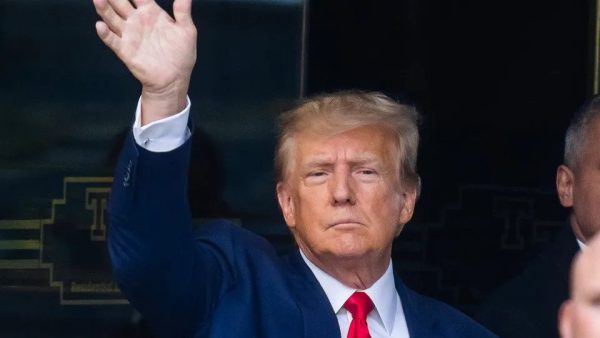The aftermath of the New Hampshire primary
To the surprise of many, Donald Trump won the Republican New Hampshire primary and Bernie Sanders won the Democratic New Hampshire primary.

The results of the 2016 New Hampshire Primary
A year ago, I don’t think anyone could’ve predicted that outcome. Both Trump and Sanders are viewed as extreme candidates on the political spectrum, which leads people to question how they both gained so much popularity. In Trump’s case, many Americans view him as a pioneer for change in the U.S. His slogan, “Make America great again,” resonates throughout his fan base, as they all want a new era to begin after the election of the next president.
When asked whether he believed Trump could win the Republican nomination, Elder student body president Jake Rinear replied, “It’s definitely possible, but to understand how this primary is going to play out, you have to look at a different poll: favorability.” Rinear then went on to explain to me that Trump has secured over a third of GOP support, but his favorabilities stop there. What that means is that the people who support Trump right now are the only ones that will support him at all. As candidates drop out, his numbers will stay where they are.
Rinear then explained that if the establishment (Kasich, Bush, Rubio) wants to win the nomination, they have to choose one between themselves. That way, Cruz and Trump will split the anti-establishment vote, leaving the one establishment candidate to represent the Republican Party in November.
In Sanders’ case, he’s done an impressive job when it comes to marketing to the younger voters. By proposing free college tuition, Sanders has gained the support of many young democrats. Without the help of super PACs, Sanders has managed to raise a record $5.2 million from supporters to help fund his campaign. Sanders, too, sees himself as a leader of a revolution. While addressing New Hampshire after his primary win Sanders said, “We will all come together to say loudly and clearly that the government of our great nation belongs to all of us, not just a few wealthy campaign contributors. That is what this campaign is about. That is what the political revolution is about.”
As one of Bernie’s younger supporters, Senior Clay Pragar recently explained to me why he supports Bernie. He cited that a major issue for him is climate change, and since none of the Republicans address that issue, he had two options for who he would eventually support: Bernie and Hillary.
When asked why he doesn’t support Hillary, Pragar replied, “I know she gets funding from Wall Street, but then vows to take on Wall Street. I don’t buy her argument; she doesn’t seem honest to me.” Clay then went on to mention how Hillary flip flops on certain issues given the popular circumstances when she’s forced to make a declarative statement.
The only popular Democratic candidate left was Bernie Sanders, and Clay happens to actually agree with Sanders on many issues. For example, he agrees with Bernie’s stance on breaking up the big banks, along with getting rid of super PACs. Overall, many young Democrats are finding refuge in Bernie in response to Hillary’s growing trust issues.
So for the rest of the candidates who fell short in the NH primary, what’s next? Some, such as Carly Fiorina and Chris Christie, have decided to drop out of the race. However, the others must presumably continue their bids, here’s a run down on what’s next for some of the major candidates:
Marco Rubio (R)
Finishing fifth definitely wasn’t an ideal scenario for Senator Rubio. Coming off a shaky debate performance, many expected Rubio to take a tumble in the polls, but I don’t think anyone expecting a fall this significant. Rubio finished behind two other “establishment” candidates in Jeb Bush (4th) and John Kasich (2nd), which poses an important question: Is Marco Rubio the Republican Party’s top establishment candidate? In the coming months, Senator Rubio is going to have to separate himself from the rest through stronger campaigning and by stringing together some strong debate performances.
Hillary Clinton (D)
Although Hillary lost by a large margin to Bernie Sanders in the primary, Hillary’s supporters shouldn’t be too worried. Hillary is considered by many as the candidate most likely to continue most of what Obama has been doing as president, and to some people that’s meaningful. Also, Hillary still holds a major advantage over Sanders when it comes to support from non-white voters (63% to 20% among blacks and 54% to 33% among Latinos). All in all, the race between Hillary and Bernie is still a lot closer than the primary results reflect.
Ted Cruz (R)
After how much time he spent campaigning Iowa, it’s understandable that Senator Cruz’s support was bound to fall off in other states. Cruz finished third in the voting, and some would argue that’s a strong finish for him given the type of crowd in New Hampshire. As a Texas Senator, Cruz is likely to garner much of his support from the South. He isn’t supposed to get much support from voters in the North; However, finishing third in the primary shows that he has a wide range of influence, but with most of that concentration being in the South. Going forward, Cruz will have to continue to campaign hard in the northern states.
Jeb Bush (R)/John Kasich (R)
Both establishment candidates had strong primary showings. Months ago, many would’ve doubted that Bush and Kasich could’ve beaten Rubio in the voting–however, they both managed to do just that. For Bush, this win could definitely help him regain momentum if he plays his cards right in the coming months. For Kasich, this was a great opportunity for him to solidify himself as a serious establishment candidate. In the end, both of these men could really shake up the race by either one of them making a strong push for the nomination.
Overall, the primary isn’t a make-or-break event. However, the coming months will give us all an idea of what’s in store for the election come November.

First-year writer for The Quill. Learned scholar of Ploehsian philosophy. "Go every time so others may everytime."










Alex Wertz • Feb 15, 2016 at 12:35 pm
Thanks for the input, boss.
John Keehan • Feb 12, 2016 at 12:07 pm
I enjoyed this story, but I believe both Kasich and Bush are important enough to deserve their own paragraphs. I also think that it should be mentioned that Cruz beat Bush for third by less than 1%. Lastly, How can anyone support a communist, Bernie Sanders, or a criminal, Hillary Clinton.